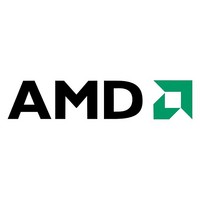CS5535-UDCF AMD (ADVANCED MICRO DEVICES), CS5535-UDCF Datasheet - Page 68

CS5535-UDCF
Manufacturer Part Number
CS5535-UDCF
Description
Manufacturer
AMD (ADVANCED MICRO DEVICES)
Datasheet
1.CS5535-UDCF.pdf
(579 pages)
Specifications of CS5535-UDCF
Operating Temperature (min)
0C
Operating Temperature (max)
85C
Operating Temperature Classification
Commercial
Mounting
Surface Mount
Lead Free Status / RoHS Status
Compliant
Available stocks
Company
Part Number
Manufacturer
Quantity
Price
Part Number:
CS5535-UDCF
Manufacturer:
AMD
Quantity:
20 000
- Current page: 68 of 579
- Download datasheet (6Mb)
GLPCI_SB unconditionally. Therefore, GLIU P2D_BM set-
tings do not affect packet routing from the listed masters.
GLIU descriptors are only used to route requests from the
GLPCI_SB and GLCP.
4.7.4
In the Geode CS5535 companion device, there are two
USB Controllers and hence two copies of this hardware.
The USB control registers are memory mapped. The mem-
ory region associated with these registers is relocatable via
standard GLIU descriptor MSRs starting at an appropriate
base address. The region size is 4 KB (1000h), that is, an
offset range of 000h through FFFh. There are four registers
called: HceControl, HceInput, HceOutput, and HceStatus.
There are no USB control registers above this region.
Special consideration is given to the legacy keyboard emu-
lation control registers normally associated with the USB
Controller. This “normal” association is due to the fact that
“normally”, the keyboard emulation hardware is physically
located with the USB hardware, even though there is no
logical association between the two at the hardware level.
This “normal” association is driven by industry standard
device drivers that group the two register sets in the same
region. The keyboard emulation registers are located at the
USB base address plus 0100h.
A single copy of the Keyboard Emulation Logic (KEL) hard-
ware is located in the Diverse Device (DD) module, where
it can be closely coordinated with a possible real keyboard
controller in any of three locations: in either USB Controller
Note 1. See Section 4.8 "Standard GeodeLink™ Device MSRs" on page 74 for register descriptions.
68
Device
GLPCI_SB
GLCP
GLIU
ACC
ATAC
USBC1
USBC2
Legacy Keyboard Emulation
MSR Space (Note 1)
Standard GeodeLink Device MSRs plus
GLPCI_SB setup. All MSRs also accessi-
ble from PCI Configuration space.
Standard GeodeLink Device MSRs plus
diagnostic and debug.
Standard GeodeLink Device MSRs plus
descriptor setup.
Standard GeodeLink Device MSRs.
Standard GeodeLink Device MSRs plus
timing parameters.
Bus Master LBAR.
Standard GeodeLink Device MSRs plus
PCI configuration emulation.
Must set PCI BAR in USB Controller.
Standard GeodeLink Device MSRs plus
PCI configuration emulation.
Must set PCI BAR in USB Controller.
31506B
Table 4-4. Register Space Map Except Diverse Device
I/O Space
None.
None.
Programmable SSMIs.
16-byte codec interface plus
a 48-byte master interface.
All trap registers removed.
Generates no SSMIs.
Legacy primary addresses.
16-byte master interface.
None.
None.
(USBC1 or USBC2), or on the LPC bus. This leaves the
problem of the control registers that are physically in the
DD, but logically (from the software perspective) in the
USB Controller.
A descriptor type is incorporated into the Geode CS5535
companion device to deal with this keyboard issue. It is a
variant of the standard “P2D Base Mask Descriptor”
(P2D_BM) called P2D_BMK (keyboard). A P2D_BMK
descriptor does additional decoding based on Address bit
8. If this bit is low, the hit directs to the USB port. If this bit
is high, the hit directs to the subtractive port. There are two
P2D_BMK descriptors in the Geode CS5535 companion
device (see Section 6.1.2.2 "P2D Base Mask KEL Descrip-
tors (GLIU_P2D_BMK[x])" on page 210).
4.7.5
Table 4-4 shows the register space map for all Geode
CS5535 companion devices except the Diverse Device.
There are no fixed addresses associated with these
devices other than the MSRs and the legacy IDE I/O
addresses as detailed in Section 4.7.3 "GLIU Decoding" on
page 67.
4.7.6
The Diverse Device register space map except legacy I/O
is shown in Table 4-5 on page 69.
AMD Geode™ CS5535 Companion Device Data Book
GeodeLink™ Device Decoding Except
Diverse Device
Diverse Device Decoding Except Legacy
I/O
Memory Space
None.
None.
Programmable SSMIs.
The register space can be
here also.
None.
4 KB, but less than 256 bytes
used. Keyboard emulation reg-
isters to Diverse Device.
4 KB, but less than 256 bytes
used. Keyboard emulation reg-
isters to Diverse Device.
Global Concepts and Features
Related parts for CS5535-UDCF
Image
Part Number
Description
Manufacturer
Datasheet
Request
R

Part Number:
Description:
Manufacturer:
AMD (ADVANCED MICRO DEVICES)
Datasheet:

Part Number:
Description:
AMD-751ACAMD-751-TM System Controller Revision Guide
Manufacturer:
Advanced Micro Devices
Datasheet:

Part Number:
Description:
AMD-751AMD-751-TM System Controller Revision Guide
Manufacturer:
Advanced Micro Devices
Datasheet:

Part Number:
Description:
AMD-X5-133SFZAm5X86? Microprocessor Family
Manufacturer:
Advanced Micro Devices
Datasheet:

Part Number:
Description:
Hyper Transport PCI-X Tunnel
Manufacturer:
Advanced Micro Devices
Datasheet:

Part Number:
Description:
HyperTransport I/O Hub
Manufacturer:
Advanced Micro Devices
Datasheet:

Part Number:
Description:
System Controller
Manufacturer:
Advanced Micro Devices
Datasheet:

Part Number:
Description:
AMD-K6 Processor
Manufacturer:
AMD [Advanced Micro Devices]
Datasheet:

Part Number:
Description:
AMD-K6™-2E Embedded Processor
Manufacturer:
AMD [Advanced Micro Devices]
Datasheet:

Part Number:
Description:
Manufacturer:
AMD (ADVANCED MICRO DEVICES)
Datasheet:











